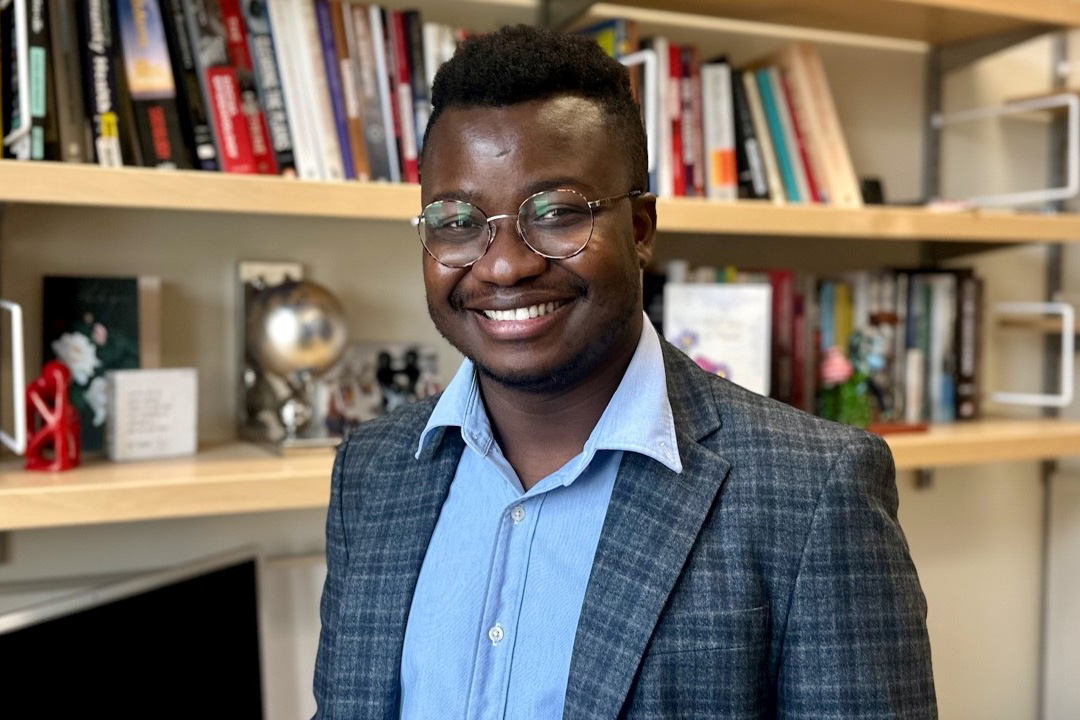
Dr. Jacob Alhassan and the Politics of Expendability
Dr. Jacob Alhassan (PhD) felt inspired to study health systems while growing up in Ghana. His work in Saskatchewan led him to explore the health outcomes tied to public transportation.
Listen to all episodes of the Researchers Under the Scope podcast.
Researchers Under the Scope is produced by the Office of the Vice-Dean Research in the College of Medicine.
"Pushing politicians to do what is good for the health of the people, there's no way around it," said Dr. Jacob Alhassan (PhD).
Born and raised in a rural Ghanian village, Alhassan grew up without electricty and paved roads. He watched women die in childbirth. He grew resentful of health systems that left the poorest people to fend for themselves, while the rich thrived. He decided to take action.
At first, he thought he would study hard to become a local hospital administrator. Partway through his university years, Alhassan began to dream even bigger.
In this episode, he looks back at his arrival in Saskatoon. He reflects on his trajectory to becoming an assistant professor of Community Health and Epidemiology; one forever changed by provincial austerity measures that wiped out the Saskatchewan Transportation Company (STC).
Billed as a cut that would save taxpayers $85 million dollars over five years, Alhassan studied Hansard and the full Saskatchewan legislature debates around the public transit network's closure. Even after making further inquiries, he found little evidence supporting the decision to cut STC.
"We have a political system that is not necessarily arranged for the well-being of average people," said Alhassan, who still remembers travelling to towns and cities across Saskatchewan to interview people devastated by the closure of the intercity bus service.
He said the cuts "radically changed" some people's lives, in some cases shortening them. Losing the parcel service also cost the provincial health care system more, with patients delaying medical care, and pharmacists throwing out delayed and weather-damaged medication and vaccines.
Fewer cities are now served by regular busses; wheelchair users have even fewer intercity travel options. They saw their freedom and ability to move severely curtailed, said Alhassan
"It's literally a might-makes-right sort of thing, where the most powerful people make decisions that deeply impact the lives of people who don't really have the voice to raise their concerns or to be heard," Alhassan said.
Today, Alhassan's looking more closely at health outcomes tied to public transportation, and their financial impact on taxpayers. He's also one of the academic co-leads of the University of Saskatchewan's Certificate in Global Health.
"You cannot do this type of work to improve people's health if you disconnect yourself from the politics," said Alhassan. "That's not going to happen if I kind of sit in the ivory tower and kind of disconnect myself from the political aspect of this. I strongly believe in that.”
